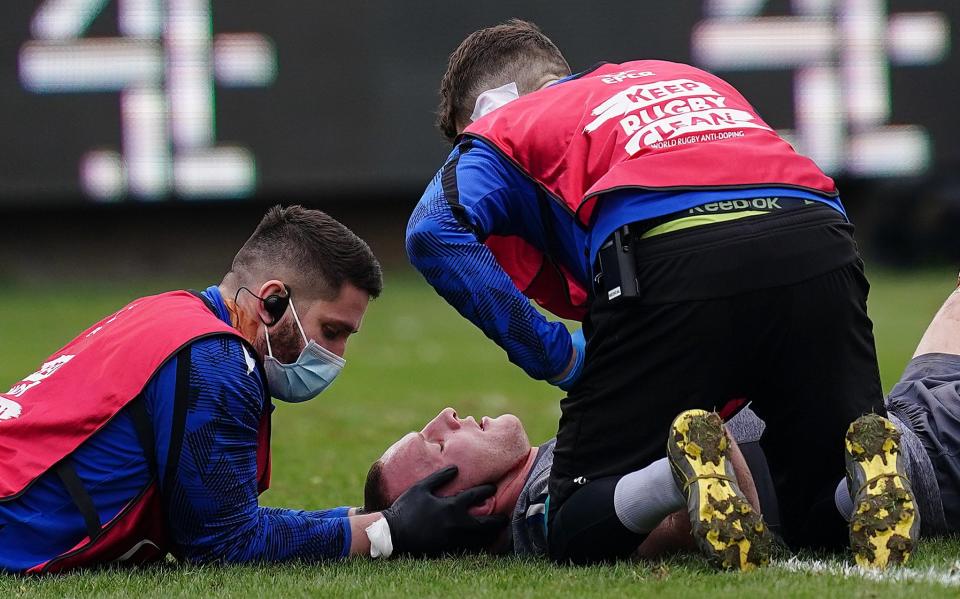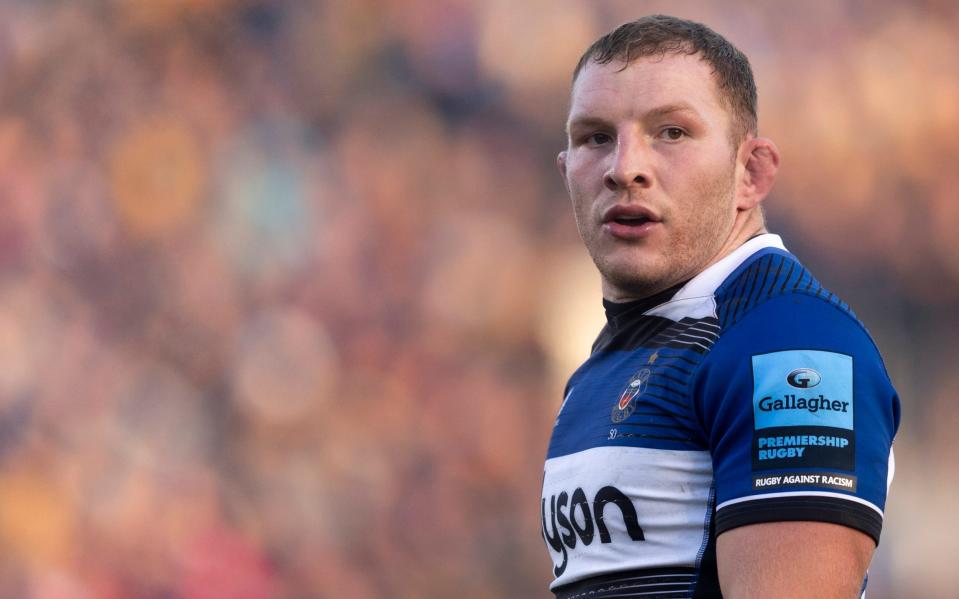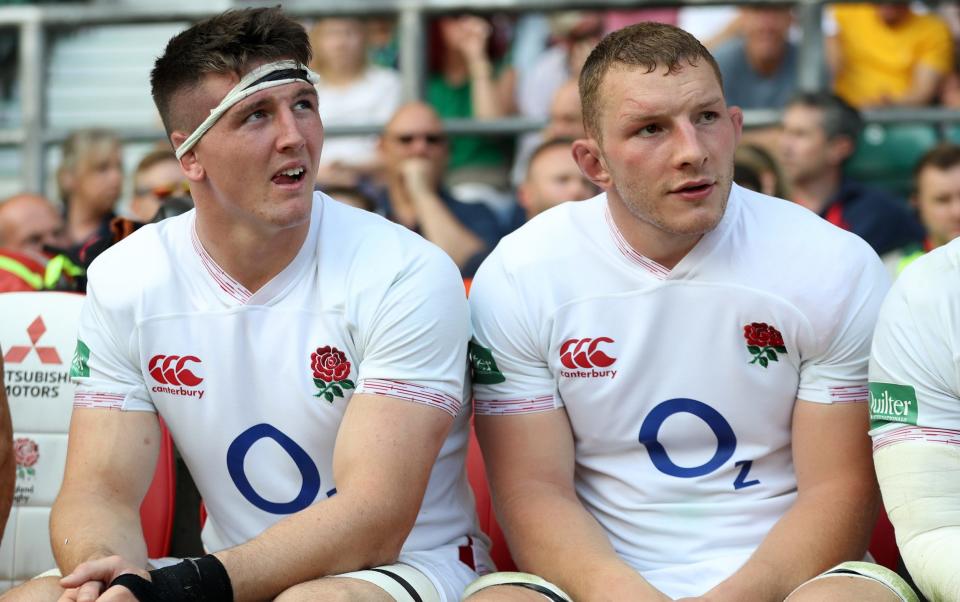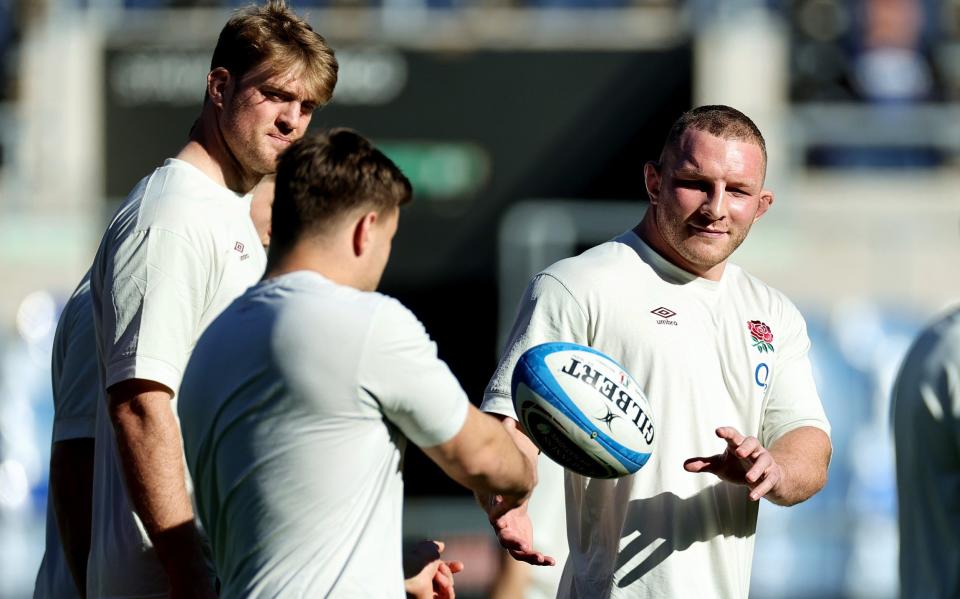Sam Underhill interview: Benefits of rugby outweigh my concussion troubles

Sam Underhill has always come across as the thinking man’s back row forward.
Having spent two years studying economics at Cardiff University – when he began his career at the Ospreys before broadening it to a politics and economics degree at the University of Bath when he moved to The Rec – one wonders what high-flying career he might have pursued in the City of London instead of becoming one of the most fearsome tacklers in the game.
He may not have the presence of some of the bigger personalities within the England squad: his appointment to the team’s new social committee was jokingly described as “controversial” by new England captain Jamie George during this interview. But when the soft-spoken flanker speaks, it is usually worth listening to. Especially when it comes to the thorny subject of concussion.
For a player who has suffered his fair share of brain injuries during his career, you could understand if the 27-year-old preferred to steer clear of the issue. By his own admission, his name has almost become attached to concussion because of the media coverage of his setbacks and the greater attention he attracts given the backdrop of the lawsuit by former players against rugby’s authorities over brain injuries.

“I get a lot of people on social media giving me their opinions,” he says. “When I have had a concussion, they say I should do this or do that, or it is not safe. Realistically the only people that matter are myself, my family and the medical professionals who are trained to look after me.
“But people have opinions on it, but I think to not speak about it, or ignore it, would be weirder.”
‘More pros than cons’
Underhill has never been one to choose the easy path. It is almost six years to the day that he revealed he had modified his tackle technique after being side-lined for almost two months because of the concussion he sustained against Australia in November 2017, his second head trauma of the season.
And the player who went on to form a destructive back-row partnership with Tom Curry at the 2019 World Cup, with former England head coach Eddie Jones labelling the pair ‘the Kamikaze Kids’ struggled for fitness throughout the last World Cup cycle with concussions the last of which he sustained last March.
For the record, Underhill says he has got no take on the ongoing lawsuit as he “was not around when those guys were playing.”
But what he is certain of is that in his opinion the rewards of playing rugby far outweigh the risks.

This week it was reported a paper to be published by academics at the universities of Winchester, Nottingham Trent and Bournemouth will argue that the risk of serious injury carried by high-impact sports such as rugby is contrary to child abuse laws.
Yet Underhill is prepared to stand up and offer a passionate support of the benefits of the game, despite the injuries he has sustained.
“It’s part of the game, isn’t it?” he adds. “But at the same time, the game offers so much. If you were to write a pros and cons list, the pros could far outweigh the cons.
“I can only speak to my own experience, but I would say caution is the name of the game with it now.
“I have never been put under any pressure to keep playing. I have had concussions and time out. But it is like any injury. If you get a broken leg, you sit out for three months. Instead of worrying that players are having a time out, it should be seen as a positive. ‘A player got concussed at the weekend. Ok that’s not great but what are they doing? They are not playing for the next four weeks. Good.’
“At the same time, the laws are constantly being reviewed to improve safety and, in my opinion, technique is a bit part of it and an under-rated one. I previously put my head in places where I shouldn’t, and it was a bit reckless. And that is on me, not the game or medical stuff. If I put my head in front of the hip or the knee of a player who is 120kg then, sometimes anyone would come out in a bad way, it is not like it is a low threshold.”
‘Rugby is not for everyone’
Underhill is adamant that rugby needs to embrace the subject of concussion, not shy away from it. He is working with a sports psychologist and feels the game looks after him.
“I feel good. I have always been well looked after and I would like to think I have always looked after myself and been honest about it too. I have tried to do the right thing and set an example for other players if they do suffer head knocks.”
Underhill said all the players are now wearing gum shields in training and matches that monitor the force of impacts. There is a threshold for ‘instant removal’ but Underhill says no player has come close to it in training.
“The more data we get the better and the more people talk about it the better. It feels like too much bad PR for the game to ignore. We should acknowledge it and say, ‘Yes it’s a risk, but we are doing all of this to mitigate it.’
“They are monitoring cumulative impacts too and using the data to spot trends. We also have a saliva test, which is an instant swab and they are able to tell by the enzymes in your saliva whether or not you have had a concussion. It is good because all of this stuff takes it out of the players’ hands.

“I think the product is good, if there are any issues, it is the way the game is perceived.
“Rugby is incredibly rewarding. It keeps you physically active. Physically I could not think of a more versatile sport and collectively you get to work within a team. You get to work with people, you get to develop relationships with people and it is massive for people’s confidence.
“My message to parents is that if they want their kids to be safe, don’t let them do anything! Rugby is not for everyone, some won’t like it. I loved it but I was also terrible when I started. When I was 11 years old, I wasn’t co-ordinated but I really loved the environment. As a kid it gave me so much more confidence. I don’t know what I would be doing now if I hadn’t played.
“And you don’t have to be really good. You play at your natural level, second or third team or whatever. That is the best bit about the game. Yes there are other sports, but I just think rugby is such an inclusive and diverse sport.”

 Yahoo Sport
Yahoo Sport 






































